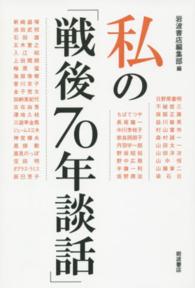Full Description
Assessing media education is a formidable task because both assessment and media education are complex and controversial concepts. Assessment, which can take place at the individual student, class, sequence, program, department or unit, and university levels, is questioned in terms of reliability, validity, relevance, and cost. Media education, which has been challenged at a number of schools, finds faculty and administrators in the midst of soul-searching about how to clearly articulate its missions and purposes to a broader audience.
Departments are under increasing national, state, and institutional pressure to get assessment procedures carried out quickly, but there is an obvious danger in rushing to implement assessment strategies before establishing what is essential in media education. In communication education in general, the "what" of assessment is often discussed in terms of skills, attitudes, affect, values, and knowledge. People assess students to determine what they know, think, feel, value, and can do. Here it is suggested that one of the places to start defining what students should learn from their media education is by identifying outcomes. Outcomes can be assessed in a variety of ways, but first they need to be developed and clearly articulated.
Contents
Contents: Preface. Part I: Programmatic Assessment.W.G. Christ, Defining Media Education. W.G. Christ, J.M. McCall, L. Rakow, R.O. Blanchard, Integrated Communication Programs. P. Orlik, R. Donald, Telecommunications Programs. J. VanSlyke Turk, Journalism and Mass Communications Programs. K.A. Krendl, R. Warren, K.A. Reid, Distance Learning. Part II: Knowledge, Skills, and Attitude Assessment.S. Wulff, Media Literacy. H. Ruminski, W. Hanks, Critical Thinking. S. Finn, Media Writing. A.M. Rubin, R.B. Rubin, Information Gathering. M.J. Haefner, Ethics. S.H. Williams, N.J. Medoff, Production. B.L. Sherman, Management. T. Dickson, Reporting and Editing. D. Kruckeberg, Public Relations. E. Applegate, Advertising.







